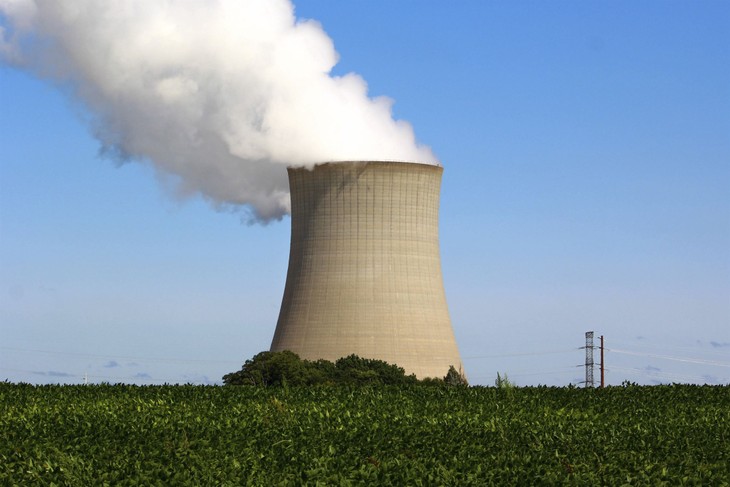BY RICK MORAN
June 15, 2021
-PJ Media
The U.S. government has been investigating reports of a radiological leak from Taishan Nuclear Power Plant in Guangdong province of China. The French nuclear company Framatome, which partly owns and helps run the power plant, took the highly unusual step of reporting a possible leak to the U.S. Department of Energy sometime last week. The company warned of an “imminent radiological threat” while the Biden administration is looking to downplay the danger.
Framatome claims that the Chinese safety authority was raising the acceptable limits for radiation detection outside the Taishan power plant. The company contacted the U.S. government, seeking a waiver so it could use American technical assistance to deal with the problem at the nuclear plant.
“It is not surprising that the French would reach out,” said Cheryl Rofer, a retired nuclear scientist. “In general, this sort of thing is not extraordinary, particularly if they think the country they are contacting has some special ability to help.”
“But China likes to project that everything is just fine, all the time,” she added.
China is denying anything is wrong.
However, the Taishan Nuclear Power Plant published a statement on its website Sunday night local time, maintaining that environmental readings for both the plant and its surrounding area were “normal.”
The two nuclear reactors in Taishan are both operational, the statement said, adding that Unit 2 had recently completed an “overhaul” and “successfully connected to the grid on June 10, 2021.” The statement did not define why or how the plant was overhauled.
“Since it was put into commercial operation, the Taishan Nuclear Power Plant has strictly controlled the operation of the units in accordance with operating license documents and technical procedures. All operating indicators of the two units have met the requirements of nuclear safety regulations and power plant technical specifications,” the statement noted.
The French state electric company EDF, which owns a 30 percent stake in the plant, says the problem relates to a build-up of “noble gasses” in the primary circuit. Noble or inert gasses are not volatile but could interfere with plant operations, including safety protocols.
Later, EDF gave more details.
Later on Monday, a spokesperson for EDF said the increased levels of radiation were caused by a “degradation of the housing of the fuel rods.”
The spokesperson affirmed that the levels of radioactivity observed at the plant were below the threshold stipulated by the Chinese authorities, adding that the affected housings are the first of three containment barriers between the rods and the atmosphere.
The spokesperson noted that the risk of a potential leakage in the rod housing was first discussed following a planned refueling outage in October 2020 after initial measurements led to suspicions of a “lack of tightness” in the housings.
The Chinese government is saying it can deal with repairs while the plant is still running. The French operators aren’t sure about that. But without a detailed analysis from an independent observer, it may not be possible to confirm that the Chinese are right.
The memo from Framatome is dated June 8 but the French company reportedly reached out to the Americans at the end of May because of some reckless decisions by the Chinese nuclear authority.
In the June 8 memo, Framatome informed DOE the Chinese safety authority has continued to raise regulatory “off-site dose limits.” It also says the company suspects that limit might be increased again as to keep the leaking reactor running despite safety concerns for the surrounding population.
“To ensure off-site dose limits are maintained within acceptable bounds to not cause undue harm to the surrounding population, TNPJVC (operator of Taishan-1) is required to comply with an regulatory limit and otherwise shut the reactor down if such a limit is exceeded,” the June 8 memo reads.
Hard to do that when the government regulator keeps raising the levels of “acceptable” radiation leakage.
The Chinese have apparently not quite mastered the safe operation of nuclear plants. The Framatome memo notes that “due to the increasing number of failures,’ China’s safety authority, the National Nuclear Safety Administration (NNSA) has since revised the limit to more than double the initial release.” In order to keep the plants operating, they have doubled to an acceptable level of radiation leakage.”
Biden’s downplaying of the incident may be the right play. Until we know what we’re dealing with, better not to hit the panic button — even if the Chinese have proven to be incompetent at running a nuclear power plant.




